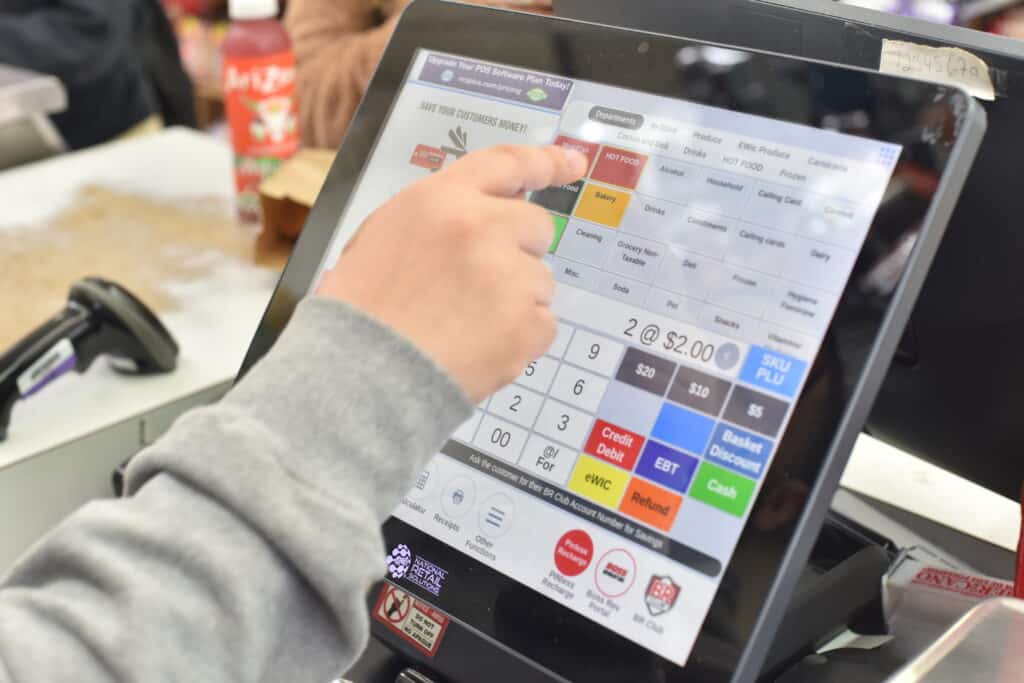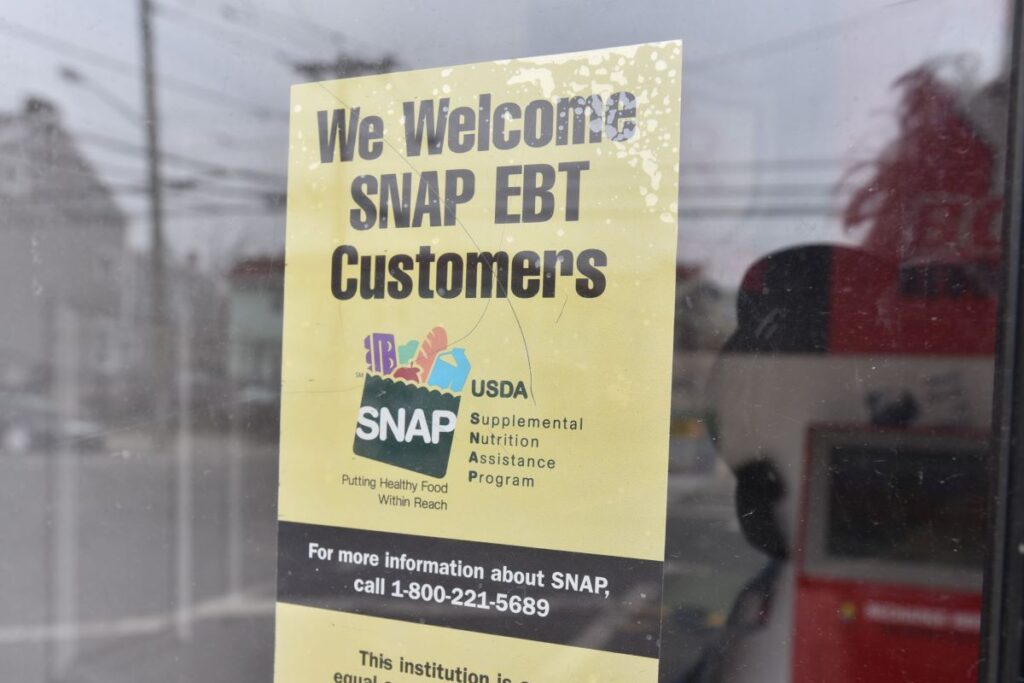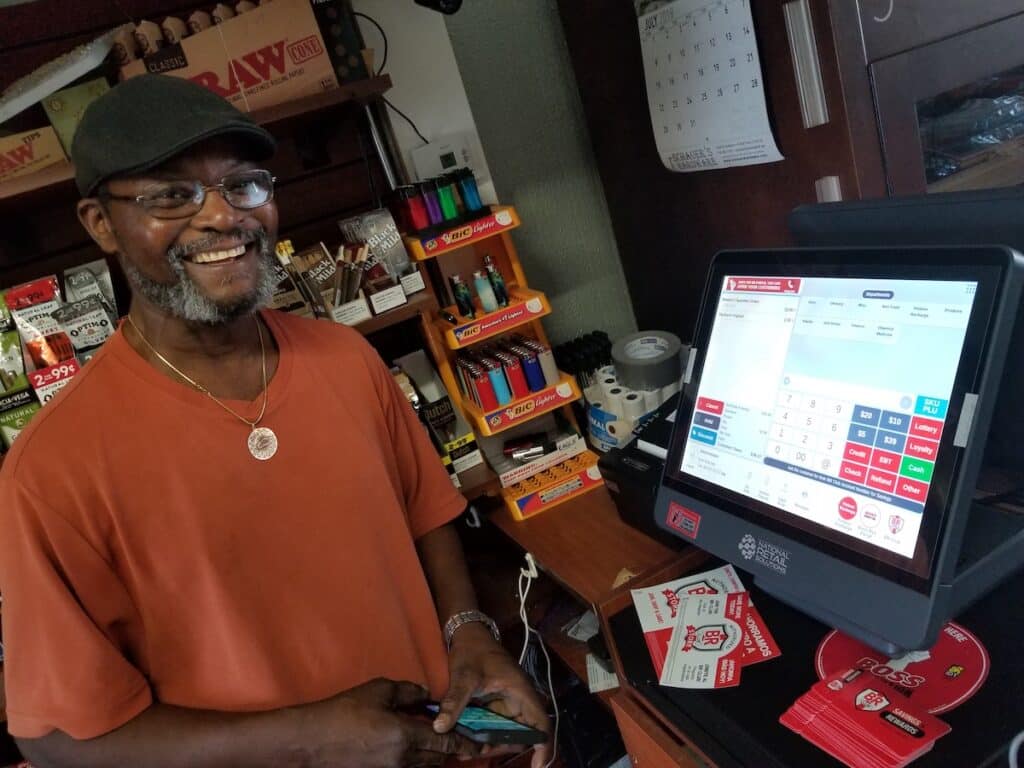- Business Plan Components:
- Business concept and objectives
- Target customers and ideal customer profile
- Marketing and promotional strategies
- Financial projections and revenue estimates
- Details about products and pricing
- Analysis of competitors in the market
- Quick and Easy Access to Funds: NRS offers quick and easy access to funds for small businesses. Applying for a cash advance is simple and can be done online or by calling NRS Funding at (833) 289-2767
- Maintain Cash Flow: NRS Pay Rapid Same-Day Funding can fast-forward your funding into your bank account and maintain your business’s cash flow. From the time your customer swipes, you’ll be funded within hours without waiting for your money.
- Flexible Use of Funds: NRS Funding cash advances can be used in many ways. Business owners can use the funds to buy inventory, purchase office supplies or equipment, or cover unexpected expenses such as equipment breakdowns, seasonal fluctuations, or unexpected drops in sales.
- No Collateral Required: NRS Funding cash advances do not require collateral, making it easier for small businesses to access funding.
- Rainy Day Fund: A cash advance can help merchants create a rainy day fund for unexpected expenses or unexpected drops in revenue. By providing capital upfront, a cash advance can allow merchants to set aside funds for emergencies without worrying about taking out a loan or depleting working capital.
- Expertise: NRS has expertise in providing funding solutions for small businesses. They understand the unique challenges that small businesses face and can provide tailored funding solutions to meet their needs.
- Retail Seller Permit: This permit is required for businesses that intend to sell or lease tangible personal property. The requirement applies to various businesses, including convenience stores.
- Business Operation License: This license is necessary for the legal operation of your convenience store. The specific requirements for this license can vary depending on your location.
- Health Permit: If you plan to sell food in your convenience store, you must obtain a health permit. This permit ensures that your store complies with local health and sanitation standards.
- Alcohol and Tobacco License: If you plan to sell alcohol or tobacco products, you will likely need to obtain specific licenses for these products. The requirements for these licenses can vary depending on your location.
- Lottery Retailer’s License: To sell lottery tickets, you must obtain a lottery retailer’s license.
- Employer Identification Number (EIN): This is a federal requirement for businesses that have employees. It’s used for tax purposes.
- Doing Business As (DBA) License: If you plan to operate your convenience store under a name different from your legal business name, you must register a DBA.
- Federal Employer Identification Number (EIN): This is required for businesses to report taxes and other documents to the IRS.
- Occupation Permit: This permit is required for the legal operation of your convenience store.
- Gas Permit: A specific permit may be required if your convenience store sells gasoline.
- Refrigeration Equipment: This includes walk-in coolers, reach-in refrigerators, novelty freezers, and open-air display coolers. These are necessary for storing perishable items like dairy products, beverages, and ready-to-eat meals.
- Shelving and Display Units: Shelves and display units are crucial for showcasing your products. They should be easily accessible and organized to facilitate a seamless shopping experience for your customers.
- Point-of-Sale (POS) System: A complete POS system is necessary for processing cash and cashless payments. It also helps track sales, inventory, and customer data.
- Security System: A security system with cameras and a panic alarm button is essential for preventing theft and ensuring the safety of your store.
- Beverage and Snack Stations: Equipment for preparing and serving hot and cold beverages (like coffee makers and cold beverage dispensers) and snack stations (like hot dog rollers, nacho warmers, etc.) are important, especially if you plan to offer ready-to-eat food.
- Cleaning Supplies: Regular maintenance of your store is crucial for providing a clean and hygienic shopping environment. Therefore, you’ll need various cleaning supplies and tools.
- Cash Register and Credit Card Processing: These are necessary for processing transactions and providing customer receipts.
- Cup & Lid Dispensers and Disposables: These are necessary to sell beverages.
- Equipment Stands and Tables: These are essential for setting up workstations, additional customer-facing screens, and storage.
- Specialized Equipment: To offer specialized services or products like lottery tickets or printing services, you must purchase the necessary equipment.
- Key Points for Stocking Your Store:
- Curate products based on local demand.
- Utilize a POS system for efficient inventory management.
- Regularly review sales data to adjust stock levels and product variety.
- Ensure a streamlined process for ordering and restocking.
- Determine Staffing Needs: Understand the number and type of employees required to run your convenience store efficiently.
- Roles to Consider: Typically, a convenience store will need cashiers, stockers, and possibly a manager to oversee operations.
- Budgeting: Allocate funds for payroll, ensuring you have the financial capacity to compensate your staff adequately.
- Training: Once hired, ensure that staff members are well-trained to handle their respective roles and provide excellent customer service.
- Incorporate in Business Plan: Integrate your staffing strategy and payroll budget into your overall business plan to ensure a holistic approach to starting your convenience store.
- NRS Ecommerce: NRS Ecommerce is a unique website integrated with the NRS POS system that allows convenience store owners to sell their products online. This can increase sales by reaching a wider audience and providing customers with a convenient shopping method.
- Find My Biz: Find My Biz is a service designed to enhance your online presence, drive more customers to your physical store, and boost your revenue. By signing up, businesses can ensure they are easily found online, especially in local search results on major search engines like Google and Bing.
- Manage My Reviews: NRS FindMyBiz offers a dedicated team to handle all reviews for a business, responding to both positive and negative feedback, ensuring that the business’s online reputation is expertly managed.
- NRS Loyalty Program: The NRS Loyalty Program is a customer loyalty program that rewards customers for their purchases. This can increase customer retention and encourage repeat business.
- Cash Discount Program: The NRS POS system offers a Cash Discount Program that allows businesses to provide discounts to customers paying with cash. This feature promotes dual pricing: regular product prices and discounted prices for cash payments. Additionally, businesses can save on costs by paying no monthly fee if they process over $18K/month with NRS Pay.
- NRS BR Club: The NRS BR Club is a grocery discount program that can help convenience store owners attract new customers and increase sales. The program offers promotions for products sold in the store and pays back the money customers save.
- NRS My Store App: The NRS, My Store App, is a mobile app that allows convenience store owners to manage their POS system using their phones or tablets from anywhere with internet access.
- Assess Your Needs:
- Inventory Management: A good system should track inventory in real time, manage re-orders, and categorize products.
- Sales Reporting: Detailed sales reports can give insights into top-selling products, sales trends, and more.
- Employee Management: Tracking employee hours, sales performance, etc.
- Customer Management: Some POS systems allow for customer profiles, loyalty programs, or marketing initiatives.
- Ease of Use: The user interface should be intuitive. Training staff should be straightforward and not time-consuming.
- Integration Capabilities:
- Can it integrate with other software solutions you use or plan to use, like accounting software or Ecommerce platforms?
- Does it support payment gateway integrations of your choice?
- Hardware Needs:
- Consider if you need tablets, touch-screen registers, barcode scanners, receipt printers, or card readers. Make sure the POS software is compatible with the hardware.
- Check if you can use existing hardware or purchase proprietary hardware.
- Scalability: Can the system grow with your business? As you expand or evolve, you want to keep systems the same.
- Offline Mode: In the event of internet outages, it’s beneficial if the POS can operate offline and sync once back online.
- Security: Ensure the POS system complies with security standards and offers features like end-to-end encryption to protect customer data and transactions.
- Cost:
- Initial setup costs (hardware and software)
- Monthly or annual subscription fees
- Transaction fees
- Upgrade or additional feature costs
- Support & Training:
- Is there 24/7 customer support?
- What kind of training resources are offered?
- Customer Reviews: Read reviews from other convenience store owners. Learn about their experiences, pros, and cons.
- Payment Processing:
- Does it support various payment methods (credit/debit cards, mobile payments, etc.)?
- Check transaction fees, or you can choose your payment processor.
- Features Specific to Convenience Stores:
- Age verification prompts for age-restricted items (like tobacco or alcohol).
- Quick-sale buttons for popular items.
- Lotteries or other specific features are relevant in your region.
- Demo or Trial Period: Before fully committing, see if the POS company offers a demo or trial. This allows you to test the system and ensure it fits your operations well.
- Contracts & Commitments: Ensure you understand the terms of service, especially if there are long-term contracts or hefty termination fees.
- Backup & Data Recovery: The POS should offer backup solutions in case of data loss.
- Updates & Upgrades: Find out how frequently the software is updated and if these updates cost extra.
- Affordability: NRS offers a cost-effective POS system tailored to small grocery stores’ needs. The system is designed to help small businesses compete with larger chains by offering features like a loyalty program and discounts.
- Ease of Use: The NRS POS system is user-friendly and easy to set up. It has a touch-screen terminal, a cash drawer, a barcode scanner, an LCD customer display, and a receipt printer.
- Inventory Management: The NRS POS system includes inventory management features that allow you to track your stock levels, set reorder points, and receive alerts when items are running low. This helps you avoid stockouts and ensure you always have the products your customers need.
- Payroll Management: Integrated payroll features in the NRS POS system streamline employee compensation, ensuring accurate and timely payments while offering a comprehensive view of store operations.
- Customer Loyalty: The NRS POS system includes a loyalty program that rewards customers for purchases. This can help you build a loyal customer base and increase sales.
- BR Club: The NRS POS system includes the BR Club grocery discount program at no extra charge.
- Cash Discount Program: The NRS POS system offers a Cash Discount Program that allows businesses to provide discounts to customers paying with cash. This feature promotes dual pricing: regular product prices and discounted prices for cash payments. Additionally, businesses can save on costs by paying no monthly fee if they process over $18K/month with NRS Pay.
- Safety and Security: The NRS Panic Alarm Button is a silent button located on the POS touch screen that enables the retailer to contact the police in case of an emergency.
Starting a convenience store business involves several steps, including creating a business plan, choosing a location, obtaining necessary licenses, getting equipment, and stocking the store.
Here’s a detailed guide on how to start a convenience store business:
Step 1: Create a Business Plan to Start a Convenience Store
Starting a convenience store business requires a solid foundation, and a business plan is crucial for its success. It should outline your business concept, target customers, marketing plan, and financial projections.
The business plan should also detail the products you’ll sell, their prices, expected foot traffic, and revenue projections.
Additionally, understanding your competitors and defining your ideal customer profile is essential.
For those unfamiliar with crafting such a plan, using a business plan template can be a valuable aid in creating each section.
Understanding your market is pivotal. This means being aware of your competitors and clearly showing your ideal customer profile.
You can tailor your offerings and marketing strategies to appeal directly to your target audience.
Step 2: Choose a Good Location to Start A Convenience Store Business
Choosing the right location to start a convenience store is crucial for success. Several factors should be considered when selecting the ideal location:
| Factor | Description |
|---|---|
| Accessibility and Traffic | Convenience stores should be easily accessible and located in areas with high foot traffic, such as on heavily trafficked roads or near transit hubs. |
| Customer Demographics | Understand the demographics of your target customers and choose a location that caters to their needs and preferences. |
| Competition | Assess the competition in the area and consider how your store can differentiate itself from other businesses. |
| Visibility | Ensure your store is visible from the road and has good signage to attract customers. |
| Safety and Security | Evaluate the overall safety of the area and take necessary precautions to prevent theft or property damage. |
| Growth Potential | Choose a location that allows for future expansion and growth of your business. |
| Operational Needs | Consider the layout and size of the retail space, ensuring it meets the operational requirements of a convenience store. |
| Zoning and Permits | Research zoning requirements and permits for your convenience store in the chosen location. |
PRO TIP: Before signing a contract for the convenience store location, request a Certificate of Occupancy (CO) from the township.
Step 3: Secure Cash Advance with National Retail Solutions
Starting a convenience store can be expensive. Startup costs can range from $50,000 to $100,000 but can go as low as $10,000 or as high as $1 million.
Your business plan can help secure funding from banks, private investors, or grants.
Getting cash advance funding from National Retail Solutions (NRS) is a great decision for small businesses for several reasons:
PRO TIP: A cash advance can help you fund unexpected startup costs when starting a convenience store business.
Overall, getting cash advance funding from NRS is a great decision for small businesses that need quick access to funds to maintain cash flow, cover unexpected expenses, or create a rainy day fund.
NRS offers flexible funding solutions, expertise, and a simple application process to help small businesses succeed.
Step 4: What Are the Legal Requirements to Start a Convenience Store?
Before you can start a convenience store, you’ll need to obtain the necessary licenses and permits.
The requirements may vary depending on your location and the specific products you plan to sell, so it’s important to research the requirements in your area.
Regardless of location, here are several common licenses and permits that you will likely need to obtain:
PRO TIP: Consult a local attorney or CPA familiar with state and local laws governing convenience store operations.
Remember, the specific requirements to start a convenience store may vary depending on your location, so it’s important to research the requirements in your area.
It’s also a good idea to consult a local attorney familiar with the state and local laws governing convenience store operations.
Step 5: Get Equipment
Starting a convenience store requires various equipment to ensure smooth operations and customer satisfaction.
Here is the convenience store equipment list.
Remember, the specific equipment you need may vary depending on the size of your store, the products you plan to sell, and the services you intend to offer.
Step 6: Stock Your Store with the Help of a POS System
PRO TIP: A POS system can provide valuable insights into sales trends, helping you decide which products to stock.
Once you have secured your location and obtained the necessary licenses to start a convenience store, you can start stocking up.
You should stock items in demand in your area and use a method that makes ordering and restocking easy.
Utilizing a Point-of-Sale (POS) system can significantly streamline this process.
A POS system can aid in inventory management, making the tasks of ordering and restocking more efficient and less time-consuming.
Understanding the preferences of your local community is crucial. By aligning your stock with their needs, you can ensure a steady flow of customers and repeat business.
Step 7: Hire Staff
You’ll need to hire staff to help run your convenience store. This includes cashiers, stockers, and possibly a manager. Make sure to budget for payroll in your business plan.
Step 8: Marketing a Convenience Store with NRS Ecommerce Products
PRO TIP: Ensure your NAP (name, address, and phone number) is consistent throughout the web.
National Retail Solutions (NRS) offers several Ecommerce products that can help convenience store owners market their stores and increase sales.
Here are some ways to market a convenience store using NRS Ecommerce products:
Overall, NRS Ecommerce products can help convenience store owners market their stores and increase sales.
By offering online sales, loyalty programs, grocery discount programs, and advertising tools, NRS can help convenience store owners reach a wider audience, increase customer retention, and improve profitability.
Step 9: Choosing a Point-of-Sale (POS) System for a Convenience Store
Choosing a Point-of-Sale (POS) system for a convenience store requires careful consideration since it can greatly influence the efficiency of your operations, customer experience, and business growth.
Here are the steps and factors to consider when choosing a POS system:
After considering the above factors, create a shortlist of POS systems that fit your needs. Compare them, and seek opinions from peers in the convenience store industry.
PRO TIP: The ideal POS system will streamline operations, improve customer experience, and contribute to the growth of your business.
Why National Retail Solutions (NRS) is the Ideal POS System for Grocery Stores
National Retail Solutions (NRS) is a good choice for a grocery store POS system for several reasons:
Overall, the NRS POS system is a great choice for independent convenience and grocery stores that want an affordable, easy-to-use, and feature-rich POS system.
It offers inventory management, customer loyalty programs, and a discount program, which can help increase sales and build a loyal customer base.








